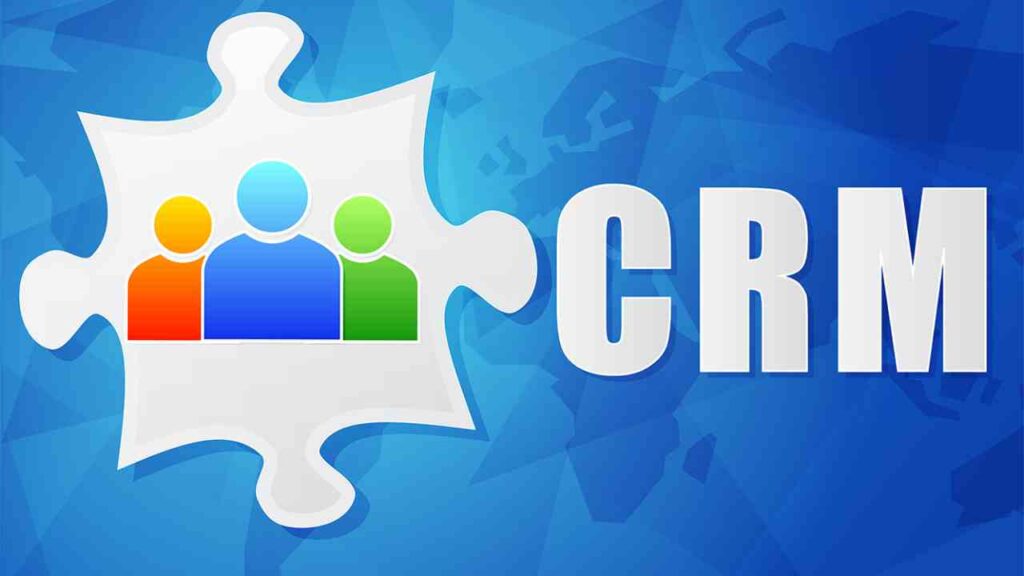Enhancing Sales Productivity with CRM

Customer Relationship Management (CRM) systems have become an essential tool for businesses of all sizes, helping them streamline their sales processes, improve customer relationships, and ultimately boost sales productivity. In today’s competitive business landscape, where customers have more choices than ever before, leveraging CRM software can give companies a significant edge. This article will explore the benefits of using CRM to enhance sales productivity and provide valuable insights into how businesses can leverage this technology effectively.
The Role of CRM in Sales Productivity
CRM systems are designed to centralize and manage customer data, providing sales teams with a comprehensive view of their customers and prospects. By consolidating customer information, CRM software enables sales representatives to better understand their customers’ needs, preferences, and purchase history. This knowledge empowers sales teams to tailor their sales approach, resulting in more effective and personalized interactions.
Furthermore, CRM systems automate various sales tasks, such as lead management, contact tracking, and opportunity management. By automating these processes, sales representatives can focus their time and energy on high-value activities, such as building relationships and closing deals. This increased efficiency leads to higher sales productivity and ultimately drives revenue growth.
Benefits of CRM for Sales Productivity
Implementing a CRM system can bring numerous benefits to a company’s sales productivity. Let’s explore some of the key advantages:
1. Improved Lead Management
A CRM system allows businesses to capture, track, and manage leads effectively. By centralizing lead information, sales teams can easily prioritize and follow up on leads, ensuring that no potential opportunity falls through the cracks. With automated lead scoring and routing, CRM software can help sales representatives focus on the most promising leads, increasing their chances of closing deals.
2. Enhanced Sales Forecasting
CRM systems provide valuable insights into sales pipelines, allowing sales managers to forecast future revenue more accurately. By tracking the progress of deals and analyzing historical data, CRM software can generate accurate sales forecasts. This information enables sales teams to allocate resources effectively, identify potential bottlenecks, and make data-driven decisions to drive sales productivity.
3. Streamlined Communication and Collaboration
CRM software facilitates seamless communication and collaboration among sales team members. With a centralized platform, sales representatives can easily share customer information, notes, and updates, ensuring that everyone is on the same page. This collaborative environment fosters teamwork, reduces duplication of efforts, and enables sales teams to work more efficiently towards common goals.
4. Personalized Customer Interactions
CRM systems enable sales representatives to deliver personalized customer experiences. By having access to comprehensive customer profiles, including past interactions and preferences, sales teams can tailor their sales approach to each individual customer. This personalization builds trust, strengthens relationships, and increases the likelihood of closing deals.
5. Efficient Sales Reporting and Analytics
CRM software provides robust reporting and analytics capabilities, allowing businesses to gain valuable insights into their sales performance. Sales managers can track key metrics, such as conversion rates, win rates, and average deal size, to identify areas for improvement and optimize sales processes. By leveraging data-driven insights, sales teams can continuously refine their strategies and drive sales productivity.
Case Study: XYZ Company
Let’s take a look at how XYZ Company, a small software startup, enhanced their sales productivity by implementing a CRM system.
Before implementing CRM, XYZ Company struggled with lead management and communication inefficiencies. Sales representatives were manually tracking leads using spreadsheets, resulting in missed opportunities and a lack of visibility into the sales pipeline. Additionally, communication among team members was fragmented, leading to misalignment and duplicated efforts.
After implementing a CRM system, XYZ Company experienced significant improvements in their sales productivity. The centralized lead management feature allowed sales representatives to easily track and prioritize leads, resulting in a higher conversion rate. The streamlined communication and collaboration capabilities of the CRM software fostered better teamwork and reduced duplication of efforts.
Furthermore, the CRM system provided valuable insights into the sales pipeline, enabling sales managers to make data-driven decisions and allocate resources effectively. With accurate sales forecasting, XYZ Company was able to optimize their sales strategies and achieve higher revenue growth.
Best Practices for Leveraging CRM for Sales Productivity
To maximize the benefits of CRM for sales productivity, businesses should follow these best practices:
- Ensure proper training and adoption: Provide comprehensive training to sales teams to ensure they understand how to use the CRM system effectively. Encourage adoption by highlighting the benefits and demonstrating how it can streamline their workflows.
- Customize the CRM system to fit your sales processes: Tailor the CRM software to align with your specific sales processes and terminology. This customization will make it easier for sales representatives to navigate and use the system efficiently.
- Regularly update and maintain data: Clean and up-to-date data is crucial for accurate reporting and effective sales strategies. Implement data hygiene practices and encourage sales teams to regularly update customer information in the CRM system.
- Integrate CRM with other business tools: Integrate the CRM system with other essential business tools, such as email marketing software or project management platforms. This integration will streamline workflows and ensure a seamless flow of information across different departments.
- Continuously analyze and optimize: Regularly review sales performance metrics and analyze the data provided by the CRM system. Identify areas for improvement, implement changes, and monitor the impact on sales productivity.
CRM systems play a vital role in enhancing sales productivity by centralizing customer data, automating sales processes, and providing valuable insights. By implementing a CRM system, businesses can improve lead management, enhance sales forecasting, streamline communication and collaboration, deliver personalized customer interactions, and leverage data-driven insights for continuous optimization.
XYZ Company’s case study demonstrates the tangible benefits of CRM for sales productivity, showcasing how a small software startup achieved significant improvements in their sales processes and revenue growth.
To leverage CRM effectively, businesses should follow best practices such as proper training and adoption, customization to fit specific sales processes, regular data updates, integration with other business tools, and continuous analysis and optimization.
In today’s competitive business landscape, implementing a CRM system is no longer a luxury but a necessity. By leveraging CRM software, businesses can enhance their sales productivity, build stronger customer relationships, and drive revenue growth.
Visit https://SaasExpert.ca – Your All-In-One Sales and Marketing Platform for small businesses, agency owners, and marketers to learn more about how CRM can transform your sales processes and boost productivity.
Learn more about “How to Upgrade Sales Processes with CRM” right here.
Frequently asked questions about Enhancing Sales Productivity with CRM.

1. How can a CRM system improve sales productivity? 🚀
Absolutely! A CRM (Customer Relationship Management) system is like the Swiss Army knife for sales professionals. Here’s how it enhances sales productivity:
Centralized Information 📂: No more juggling between spreadsheets, sticky notes, and diaries. Everything you need about a customer, from contact details to purchase history, is stored in one place.
Automated Tasks ⚙️: Automation capabilities within CRMs ensure that repetitive tasks, like follow-ups or data entry, are automatically taken care of, allowing salespeople to focus on what they do best – selling!
Enhanced Collaboration 👥: With shared calendars, task lists, and customer profiles, teams can collaborate better and ensure no lead is left behind.
Insightful Analytics 📊: Want to know which leads are most likely to convert or which sales strategies work best? The analytics and reporting features got you covered.
The bottom line is, with a CRM, salespeople can work smarter, not harder!
2. Does using a CRM guarantee an increase in sales? 🤷
Well, while a CRM is an incredible tool for amplifying sales productivity, it’s essential to remember that it’s just a tool. 😊 A CRM can:
Streamline processes 🔄
Provide valuable insights 🔍
Enhance customer engagement 🤝
However, the real magic happens when your team actively engages with the system, keeps it updated, and utilizes its features to the fullest. Proper training and implementation are crucial.
So, while a CRM can greatly assist in increasing sales, it doesn’t guarantee it. The synergy between a committed sales team and a powerful CRM system is where the real sales magic happens!
3. How long does it typically take to see results after implementing a CRM? 🕒
Great question! The time it takes to see tangible results varies. However, many businesses notice:
Improved team collaboration in a few weeks 👩💻👨💻
Better customer engagement within a couple of months ❤️
A noticeable uptick in sales after 3-6 months 📈
Remember, the key is not just implementation but also adoption. The quicker your team embraces the CRM and integrates it into their daily routines, the faster you’ll witness its benefits. 🚀
4. Are CRMs only suitable for large businesses or can small businesses benefit too? 🏢
Oh, CRMs are for everyone! Whether you’re a giant conglomerate or a boutique agency, CRMs can be a game-changer. 🎮
For large businesses, CRMs can handle complex sales pipelines, manage vast customer databases, and provide detailed analytics. But for small businesses, CRMs can:
Organize scattered customer information 📒
Automate manual tasks ⏳
Track every customer interaction 🛍️
In essence, a CRM helps small businesses appear bigger and large businesses feel closer to their customers. It’s all about picking the right CRM tailored to your business size and needs.
5. Can a CRM integrate with other tools I currently use in my business? 🔗
Absolutely! One of the biggest strengths of modern CRMs is their ability to integrate seamlessly with various tools – be it email platforms 📧, marketing automation tools 📣, or even accounting software 💼. This means you can have a unified system where data flows smoothly from one platform to another. No more manual data transfers or trying to make sense of disconnected systems. Everything works in harmony, and that’s what makes a CRM so essential for enhancing sales productivity. 🎶






